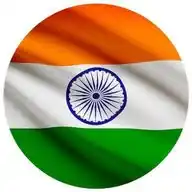
UPSC ESSAY UPSC ETHICS MPPSC UPPSC BPSC RAS UPSC UPSC UPSC UPSC UPSC UPSC UPSC UPSC UPSC UPSC CAPF
May 16, 2025 at 03:07 PM
🔆 Key Takeaways: Aftermath of Pahalgam Attack & India’s Collective Identity
📍 Context
✅ The article reflects on the aftermath of the Pahalgam attack, where tourists were targeted based on religious identity.
✅ Focuses on how public discourse and political responses shape India’s evolving collective identity.
📍 Three Key Constituencies That Shape the Discourse
1️⃣ Militaristic/Juvenile War Constituency
◦ Romanticises war, often driven by those without direct war experience.
◦ Sees war as a solution to national problems, especially against Pakistan.
◦ Valorises militarism and reduces diplomacy to weakness.
◦ For them, war is a value in itself, not a last resort or means to peace.
2️⃣ Hyper-nationalist/Pakistan-focused Constituency
◦ Views Pakistan as illegitimate, existing due to partition and violence.
◦ Believes India must erase Pakistan from global relevance to assert nationalism.
◦ Influences public sentiment and ideology but doesn’t dominate policy.
3️⃣ Anti-Muslim Constituency
◦ Sees Indian Muslims as an extension of Pakistan.
◦ Blurs line between terrorists and Indian Muslims, fueling majoritarian politics.
◦ Evident in the political decision to have a Muslim officer defend the government, seen by some as a guilty conscience.
📍 Wider Implications
✅ These constituencies have long-standing influence on public discourse and perceptions of nationhood.
✅ Promote exclusionary nationalism, particularly against Indian Muslims.
✅ Consequences include weakening democratic values, shifting from constitutional patriotism to emotive nationalism, and reducing scope for peaceful regional coexistence.
❤️
🖕
😂
3